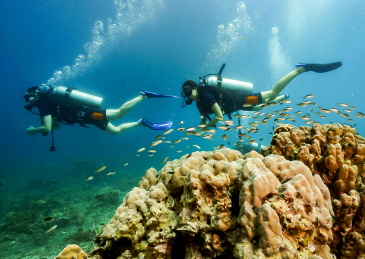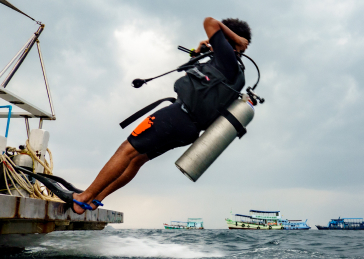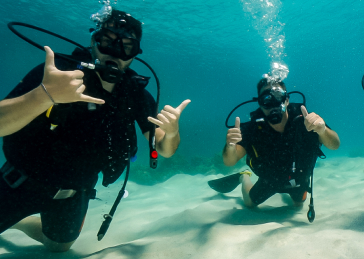Modified 9th June 2025
Why You Should Become a Scuba Instructor: Complete Career Guide
Becoming a scuba instructor represents one of the most rewarding career paths for those passionate about the underwater world. Unlike traditional office jobs, this profession offers daily adventures, international opportunities, and the profound satisfaction of sharing your love for the ocean with others. If you’ve ever wondered whether this lifestyle could be right for you, this comprehensive guide explores why you should become a scuba instructor and what it takes to succeed in this extraordinary field.
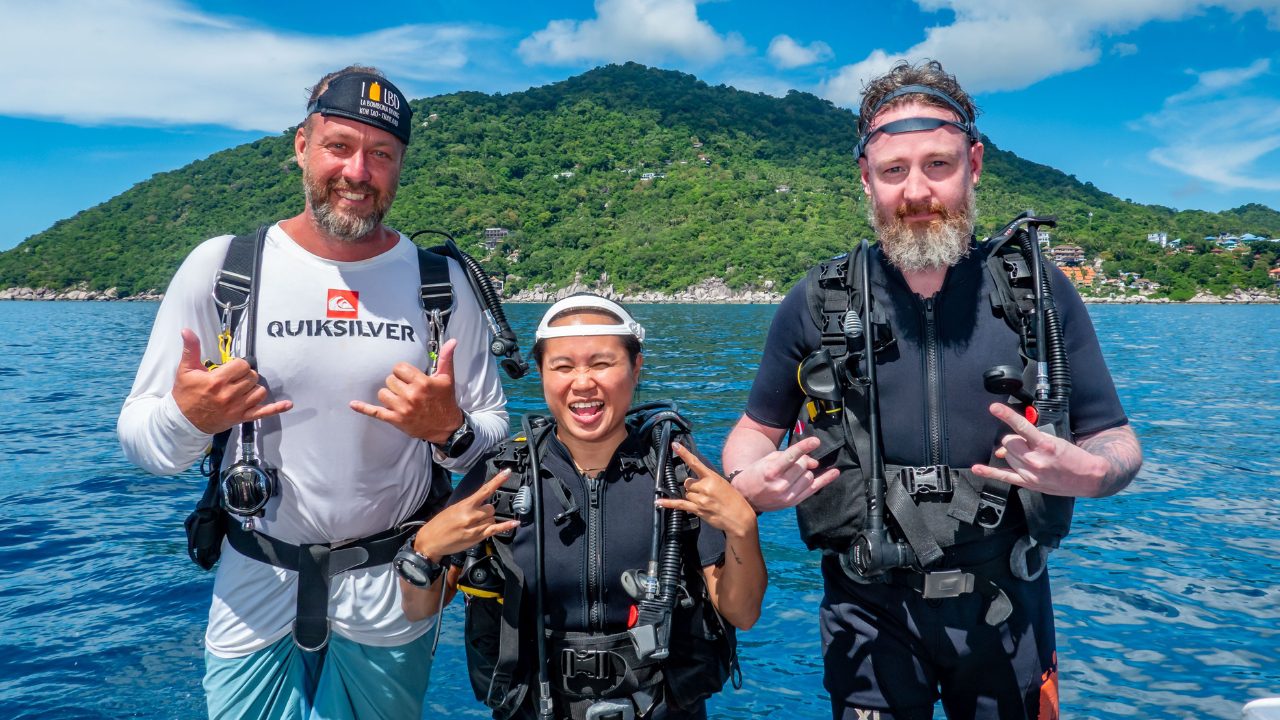
Life-Changing Benefits of Becoming a Scuba Instructor
Career Path to Becoming a Scuba Instructor
Step-by-Step Progression
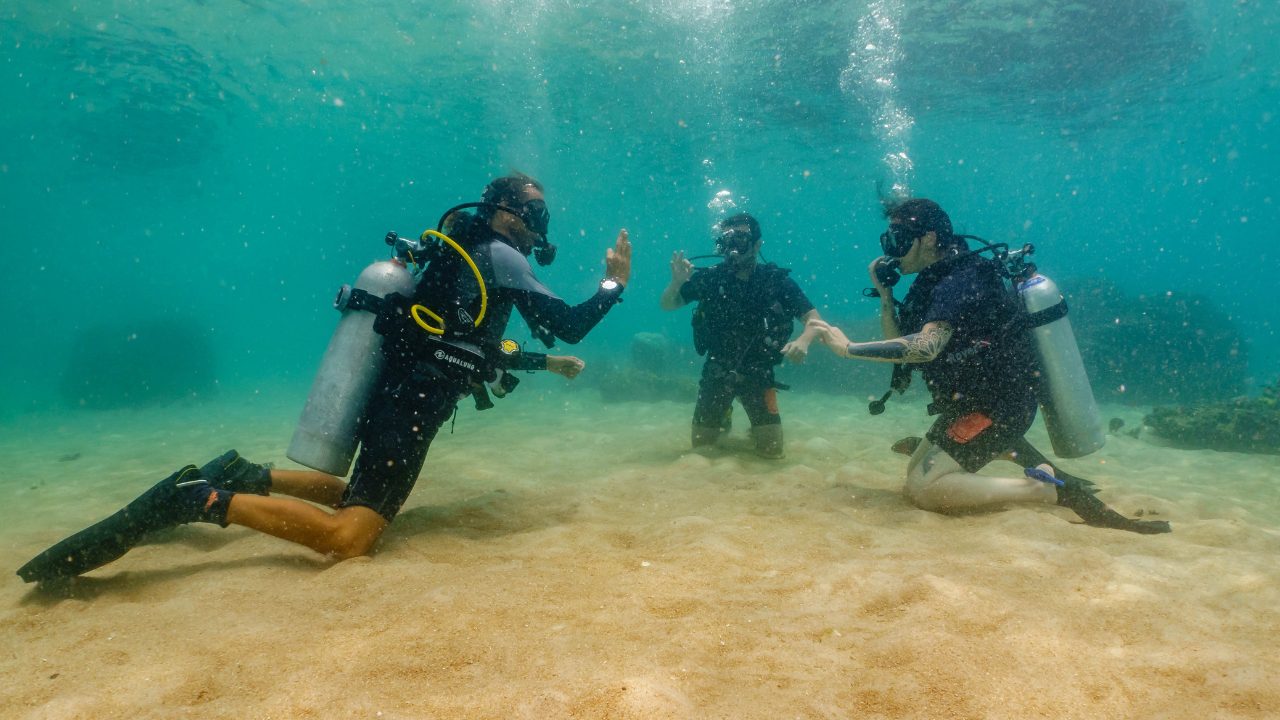
Certification Agency Comparison
| Agency | Global Recognition | Training Style | Annual Fees | Best For |
|---|---|---|---|---|
| PADI | Largest worldwide network | Structured, comprehensive approach | Required annually | Maximum job opportunities globally |
| SSI | Strong international presence | Flexible, personalized instruction | Required annually | Adaptable teaching methods |
| RAID | Modern, technology-focused | Innovation-based training | No annual fees | Tech-savvy instructors |
Investment Required: Building Your Future
Financial Investment Breakdown
While the initial investment may seem substantial, remember that you’re purchasing access to a lifestyle and career that offers unlimited potential. The skills and certifications you gain open doors to opportunities worldwide and provide a foundation for lifelong adventure and income generation.
Realistic Assessment: Pros and Challenges
- Work in paradise locations worldwide
- Meet people from diverse backgrounds
- Flexible schedule and lifestyle
- Contribute to marine conservation
- Continuous skill development
- Combine passion with profession
- Strong international community
- Seasonal work options available
- Seasonal income variations
- Physical demands and fitness requirements
- Weather-dependent work conditions
- Visa and work permit considerations
- Equipment maintenance responsibilities
- Emergency response pressure
- Continuous certification renewals
- Competition in popular destinations
Global Opportunities and Lifestyle Benefits
One of the most compelling reasons why you should become a scuba instructor is the unparalleled freedom to work globally. From Thailand’s warm waters to Egypt’s Red Sea, from Australia’s Great Barrier Reef to Mexico’s cenotes, your certification becomes a passport to adventure. Understanding how to reach prime diving destinations is essential for planning your instructor career.
This career offers unique lifestyle benefits that traditional jobs simply cannot match. You’ll start your day with sunrise dives, spend afternoons teaching passionate students, and have evenings free to explore local culture or relax on beautiful beaches. The work-life integration is natural and fulfilling, especially when you understand the optimal conditions for diving instruction.
Physical and Mental Requirements
Success as a scuba instructor requires both physical fitness and mental resilience. You’ll need to handle heavy equipment, manage long hours in water, and respond calmly to emergencies. Maintaining good physical condition through regular exercise and proper nutrition is essential.
Mental preparation is equally important. You’ll work with students who may be anxious or fearful, requiring patience, empathy, and excellent communication skills. The ability to remain calm under pressure and maintain enthusiasm even during challenging days is crucial for long-term success.
Ready to transform your passion for diving into a rewarding career? La Bombona Diving offers the complete pathway from beginner to instructor in one of the world’s best training destinations.
Koh Tao provides the perfect environment to develop your skills with year-round diving conditions, diverse marine life, and a supportive international community of diving professionals. When researching your training options, consider exploring the top dive centers and understanding instructor compensation standards in the area.
- Complete progression from Open Water to Instructor
- RAID Instructor Development Program available
- Experienced instructor trainers with proven track record
- Flexible training schedules to fit your timeline
- Job placement assistance after certification
- Modern equipment and safety-focused training
- International student community for networking
- Comprehensive support throughout your journey
Instructor Development Program (RAID): ฿102,000
Complete 14-day training + 2-day examination
All fees included: Training materials, certification processing, equipment rental, boat trips, plus complimentary Nitrox and Deep specialty certifications at no additional cost.
Begin Your Instructor Career JourneyProfessional certification | International recognition | Career placement support
Preguntas frecuentes
Taking the Next Step
Understanding why you should become a scuba instructor is just the beginning. This career path demands commitment, investment, and dedication, but rewards those who pursue it with a lifestyle of adventure, purpose, and continuous growth.
If you’re passionate about the ocean, enjoy teaching others, and want to escape the constraints of traditional employment, becoming a scuba instructor could be the perfect career choice. The combination of personal fulfillment, travel opportunities, and the chance to make a positive impact on both people and the environment makes this profession truly unique.
Start by researching instructor development programs in destinations that appeal to you, connecting with current instructors to learn about their experiences, and taking the first steps toward your own underwater teaching adventure. Understanding diving opportunities for different skill levels will help you appreciate the full scope of instruction possibilities.
Bucea con LBD: tu puerta a la exploración submarina
Whether you’re a curious beginner or a seasoned pro, our school is your portal to the wonders of scuba diving. Join us into the world beneath the waves.
¿LISTO PARA EMPEZAR?
Consulta nuestros cursos de buceo en Koh Tao
